Thamma Movie Review: A Festive Horror Comedy
That Wears Its Fangs, but Doesn’t Bite!!
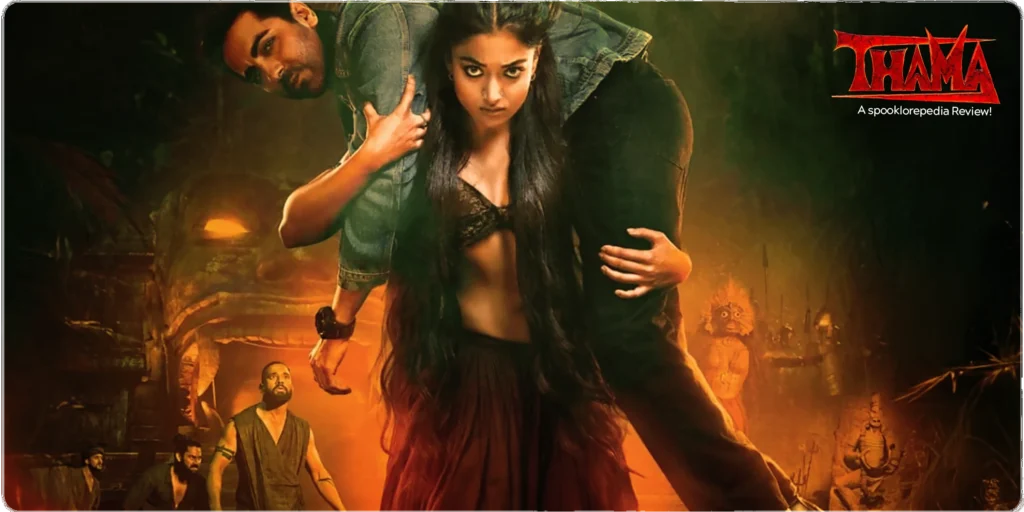
Introduction
Thamma, directed by Aditya Sarpotdar and featuring Ayushmann Khurrana, Rashmika Mandanna and Nawazuddin Siddiqui as its stars, arrives this Diwali (October 21, 2025) as the latest entry into Maddock Films’ horror-comedy universe.
Rooted in folklore and featuring vampire-like creatures known as Betaals, the film blends horror, humor and romance seamlessly while boasting an ambitious visual style for maximum excitement and spectacle.
As festive lights illuminate and expectations surge, one big question remains — does Thamma truly deliver the Diwali entertainment it promises?
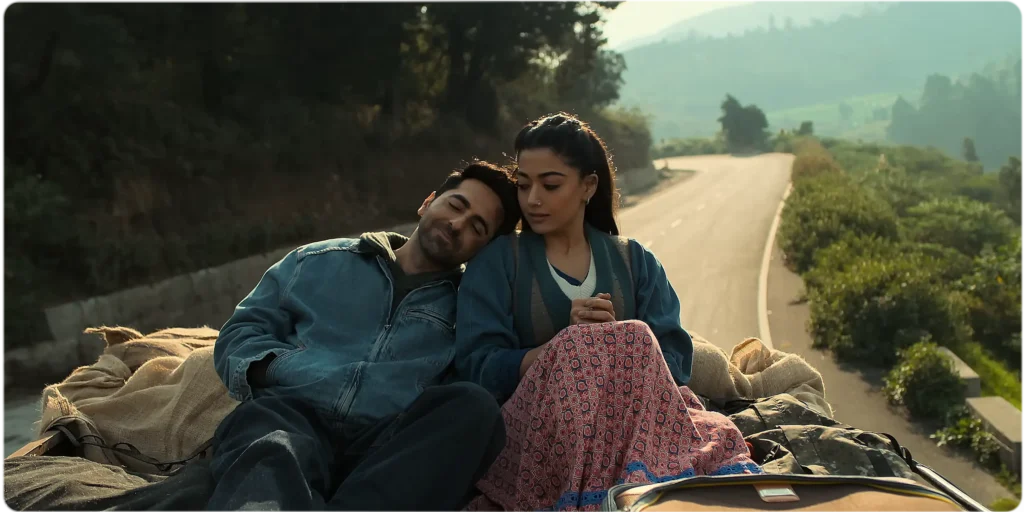
Plot & Premise
Alok Goyal (Ayushmann), an ordinary small-town reporter from India, steps into an unfamiliar forest where he meets Tadaka (Rashmika), one of a tribe called Betaals composed of supernatural beings with strict codes governed by them. Soon thereafter he finds himself captured for sacrifice at one of their dark ceremonies, prompting Tadaka to break her own code to save him; eventually creating a battle between humans and supernatural forces as love collides with duty, myth meets modern life, until finally Yakshashan unleashes his evil plan against it all and all-out war ensues until finally Yakshashan unveilss his plan to upend everything around.
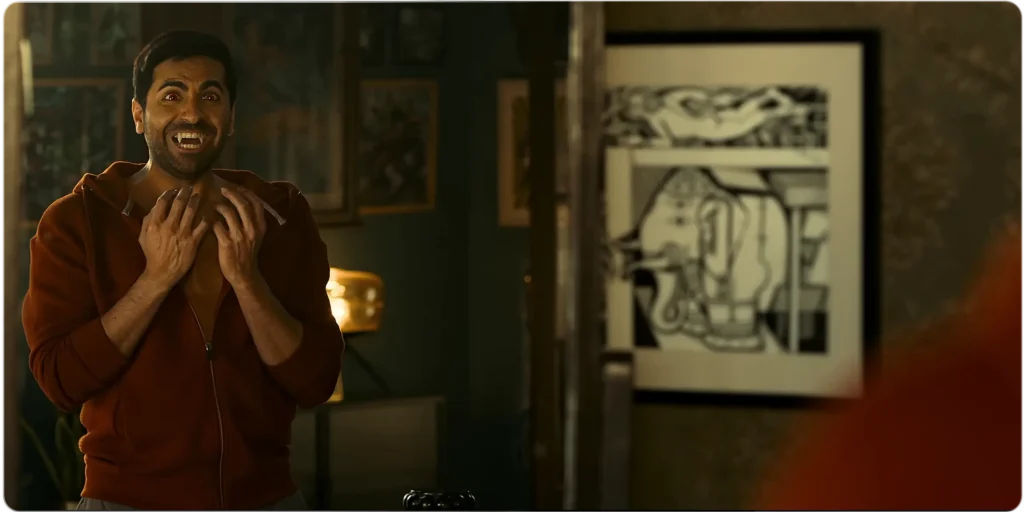
Ayushmann’s Worst
Thamma marks Ayushmann Khurrana’s most uninspired performance yet. While known for his natural charm and emotional depth in films like Article 15 and Bareilly Ki Barfi, here he seems distant, almost going through the motions without conviction or flair. Although not bad by any stretch of imagination, Khurrana fails to dazzle audiences here.
Critics from India Today and Filmfare criticized Thamma as being lifeless and lacking charm, noting Ayushmann’s uncertain sincerity as well as emotions he couldn’t quite land, along with an inferior script and forced romance that resulted in it feeling forced rather than authentic; ultimately leaving an unpleasant aftertaste behind with this, his weakest work yet.

The Worst Intro
Thamma features an early scene where Ayushmann Khurrana’s character Alok is attacked by a bear that serves to set up his meeting with Rashmika Mandanna’s character Tadaka; yet, this encounter comes across as disorienting and off-kilter; one issue lies within its choice of bear; rather than depict an Indian bear with less aggressive characteristics, the film uses an aggressive North American bear instead, breaking its connection to India setting and folklore while appearing more like spectacle than narrative – taking viewers out from his story instead than drawing them deeper within it!
Critics have noted that Thamma often relies on exaggerated moments to build tension, often losing any logical flow as a result. One such scene, the bear attack between Alok and Tadaka, illustrates this problem perfectly – its unrealness deflating both suspense and emotion while at the same time serving its intended function – making for an inconsistent narrative experience which often seems forced instead of natural.
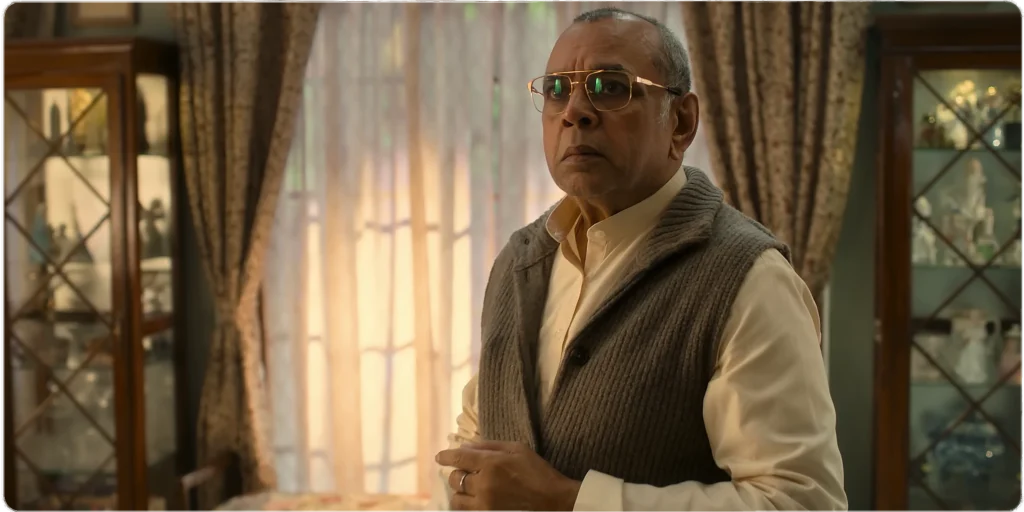
The Supporting Cast
In Thamma, Paresh Rawal portrays an over-caring father who could have been the emotional anchor of the story, but the weak script never allows his character to fully shine. While Rawal brings charm, humor, and genuine warmth to his role often stealing scenes with his timing, his character feels inconsistent due to the film’s uneven writing. Critics note that his portions, though heartfelt at times, also feel “force-fitted” just to evoke laughs, leaving the character oscillating between meaningful and misplaced. Despite his experience and effort, Rawal’s performance becomes a hit-and-miss element in a film that doesn’t quite know how to use its supporting cast effectively.

Villain with No Villainy
Nawazuddin Siddiqui makes his mark with Thamma as Yakshasan, yet his performance falls flat. Siddiqui is famous for playing intricate and menacing characters but fails to leave an impactful performance here due to an inferior script with shallow motivations that keeps the character from feeling truly menacing.
Critics note that Siddiqui’s acting occasionally verges on overstatement. Unfortunately, his overacting clashed with the film’s uneven tone and thus reduced any sense of danger. His presence added moments of intrigue but did not anchor it enough. Yakshasan became just another source of chaos rather than an iconic antagonist; ultimately making this role feel like wasted talent being wasted away on an impotent part.
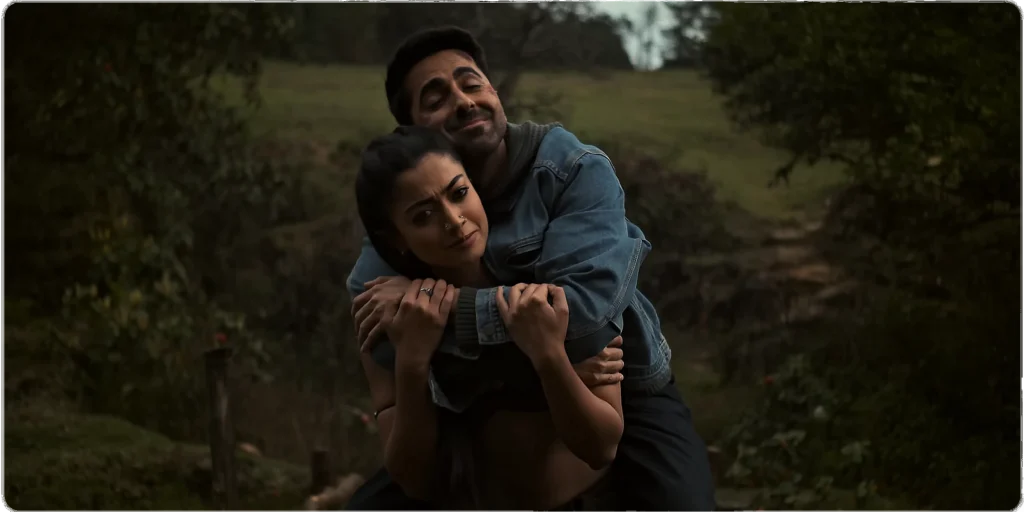
Lack of Chemistry
In Thamma, the emotional pulse of the story falters primarily due to the lack of chemistry between Ayushmann Khurrana and Rashmika Mandanna. Despite Rashmika’s evident improvement in her Hindi diction and her sincere attempt to match Ayushmann’s natural screen presence, their connection feels oddly distant. The romantic sequences often appear mechanical, missing the spark and emotional resonance that could have made their love story believable. At times, the relationship feels forced, as if the narrative is trying too hard to convince the audience of a bond that never truly ignites. While both actors deliver earnest individual performances, together they fail to create the magic expected from a heartfelt romantic drama.
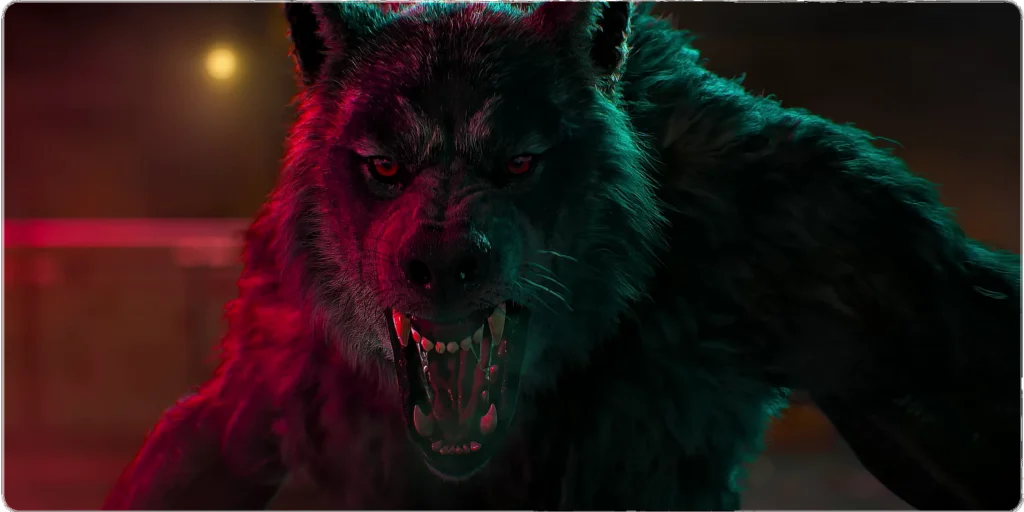
Connection with Bhediya
The most exciting part of Thamma is its link to Maddock Films’ growing horror-comedy universe. It connects directly with Bhediya and Munjya. The film itself struggles to hold attention, but the crossover moments stand out. Varun Dhawan’s cameo as his werewolf character from Bhediya adds energy and a sense of purpose.
Critics agree that the shared universe feels stronger than the main story. It hints at a larger plan to connect vampires, or Betals, and werewolves within Indian mythology. Director Amar Kaushik has confirmed that Maddock is building this “Stree Universe” with intention. Thamma continues that vision.
The Munjya mid-credits scene already teased this connection. In it, Bhaskar (Varun Dhawan) mentions a mysterious blood-sucking creature, setting up Thamma’s vampire thread.
As a standalone film, Thamma falls short. Yet, its biggest success is how it expands the supernatural world. It finally gives fans a glimpse of an Indian-style Vampire vs. Werewolf clash—something both unexpected and exciting.
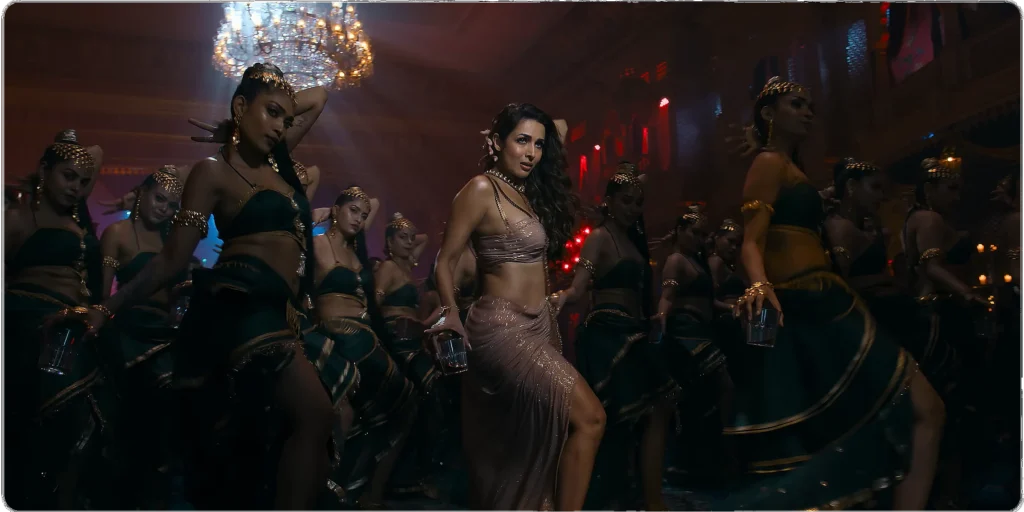
Unnecessary Item Songs
Thamma features several high-profile item songs, including performances by Rashmika Mandanna, Nora Fatehi, and Malaika Arora, but their excessive inclusion has drawn criticism. While the songs showcase energetic dance and glamour, they often feel disconnected from the story, diverting attention from the film’s main plot and characters. Critics argue that these sequences prioritize spectacle over substance, diluting the horror-comedy experience and disrupting the narrative flow. Ultimately, the item songs, though visually appealing, come across as unnecessary additions that weaken the film’s cohesion.
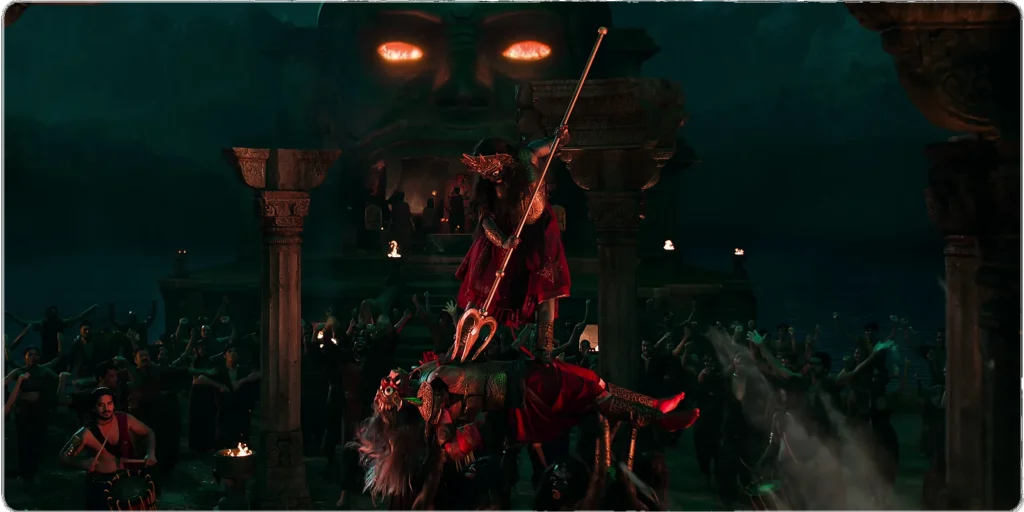
Origins of Indian Vampires
One of Thamma’s greatest strengths lies in how it reimagines the Vetala from Indian folklore as a rooted, cultural vampire. Unlike Western vampire stories, the film keeps the Vetala’s mythic and moral essence intact. These beings follow strict rules about blood consumption, and their violations set the plot in motion.
The idea comes from centuries-old Indian tales like the Vetala Panchavimshati. In those stories, the Vetala lives inside corpses, tests humans with riddles, and shifts between predator and protector. Thamma gives these Betals vampiric traits — bloodlust, transformation, and a clear sense of belonging to a sect.
This choice grounds the film’s horror in Indian tradition instead of copying Western myths. Critics and audiences have praised this approach. It gives the story depth, identity, and a new way to view the classic vampire-versus-werewolf conflict within an Indian setting.

Good Cameos
One of Thamma’s strongest elements is its well-timed cameo appearances, which enhance both fan enjoyment and the film’s connection to the Maddock Horror Comedy Universe (MHCU). Varun Dhawan’s return as Bhediya adds intensity and excitement, while characters from previous MHCU films, such as Elvis Karim Prabhakar from Munjya, create continuity and reward longtime fans. The post-credit introduction of Aneet Padda as Shakti Shalini hints at future storylines, expanding the universe further. However, despite these engaging cameos, they do little to elevate the film itself, which continues to struggle with weak storytelling and uneven execution.

Conclusion
Thamma works better as a link in the Maddock Horror Comedy Universe (MHCU) than as a standalone film. It connects well with Bhediya and other entries in the series. Yet, the story feels scattered and lacks emotional depth. The horror never truly lands, and the romance and comedy seem forced.
Critics note that the performances, including Ayushmann Khurrana’s, are sincere but cannot lift the weak script. Even so, the film has found commercial success, showing that audiences remain interested in the MHCU.
Overall, Thamma fits best as an OTT release that expands the universe. For a more rewarding Diwali watch, Kantara Chapter 1 or Lokah Chapter 1: Chandra might be better picks.

